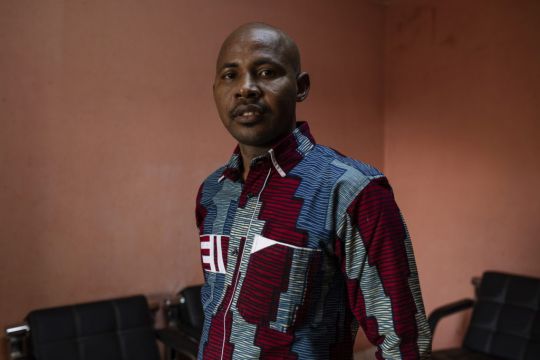A prominent human rights defender in Burkina Faso has been abducted by unknown individuals, rights groups have said.
Activists say it could be the latest attempt by the military government to target dissidents using a controversial law.
Daouda Diallo, a 2022 recipient of the Martin Ennals international human rights award, was abducted on Friday in the capital Ouagadougou after visiting the passport department where he had gone to renew his documents, according to the local Collective Against Impunity and Stigmatisation of Communities civic group, which Mr Diallo founded.
His captors – in civilian clothing – accosted him as he tried to enter his car and took him to “an unknown location”, the group said in a statement on Friday, warning Mr Diallo’s health could be at risk and demanding his “immediate and unconditional” release.
Amnesty International’s west and central Africa office said the abduction was “presumably (for him) to be forcibly conscripted” after he was listed last month among those ordered to join Burkina Faso’s security forces in their fight against jihadi violence as provided by a new law.
“Amnesty International denounces the use of conscription to intimidate independent voices in #BurkinaFaso and calls for the release of Dr Diallo,” the group said via X, formerly known as Twitter.
Earlier this year, Burkina Faso’s junta announced the “general mobilisation” decree to recapture territories lost as jihadi attacks continue to ravage the landlocked country.
The decree empowers the government to send people to join the fight against the armed groups.
It is also being used to “target individuals who have openly criticised the junta” and “to silence peaceful dissent and punish its critics”, Human Rights Watch (HRW) has said.
HRW said at least a dozen journalists, civil society activists and opposition party members were informed by the government in November that they would be conscripted, including Mr Diallo, who joined Burkina Faso activists in condemning the move.
“The simple fact of showing an independence of position is enough to be conscripted,” said Ousmane Diallo, a researcher with Amnesty International in Burkina Faso.
“Right now, civil society activists, human rights defenders and even leaders of opposition political parties do not dare express freely their opinions because this decree is being used to silence and intimidate all of the voices that are independent,” he added.







